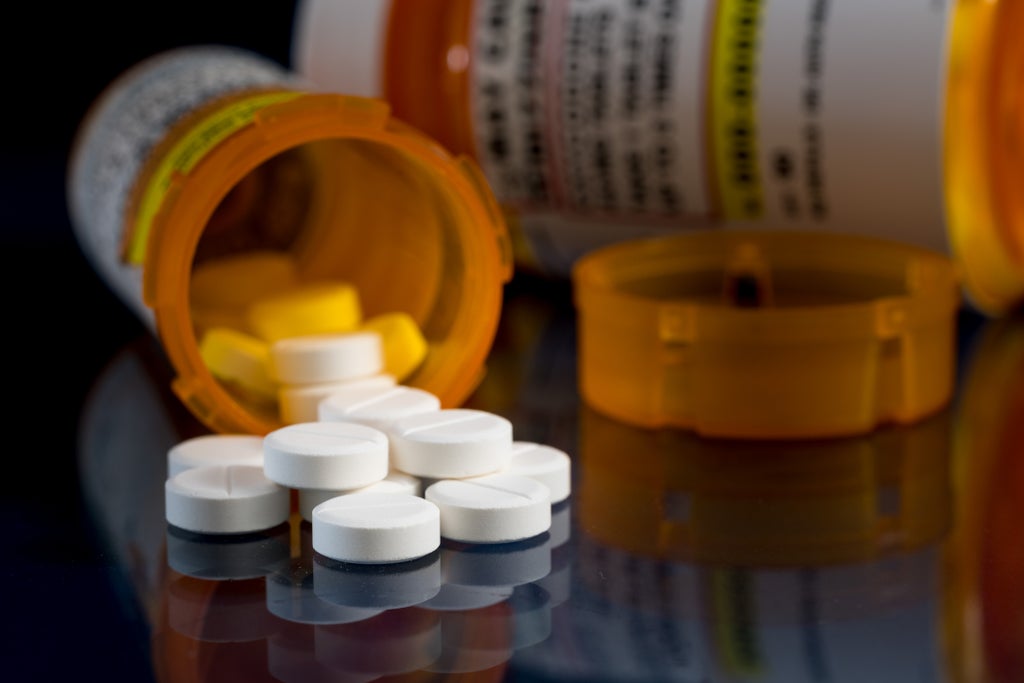
The attorneys general of 15 states, and lawyers representing local governments, have unveiled a landmark $26bn settlement with large drug companies for allegedly fuelling the US’s deadly opioid epidemic.
Requiring the support of a majority of states and thousands of locales that have sued drug manufacturers and distributors is the next big hurdle.
The proposal would see the three largest drug distributors — McKesson Corp, Cardinal Health, and AmerisourceBergen — pay a combined $21bn, while pharma giant Johnson & Johnson would pay an additional $5bn.
Proceeds from the proposed settlement would mostly be put towards social programmes, including addiction treatment, family support, and drug education, with some set aside to cover the legal costs of the plaintiffs.
Money from the distributors would be paid out over 18 years. J&J would pay out over nine years, with $3.7bn paid in the first three years.
There would also be industry changes, with J&J forced to stop the sale of opioids nationwide, and the distributors made to coordinate and share their data with an independent monitor to show where drugs are going, how many, and how often.
The distributors are accused of lax oversight that allowed vast amounts of highly addictive painkillers to illegally enter the marketplace leading to the devastation of communities nationwide. J&J is accused of downplaying the risk of addiction in its promotion of drugs.
All have denied the allegations.
“The numerous companies that manufactured and distributed opioids across the nation did so without regard to life or even the national crisis they were helping to fuel,” said New York Attorney General Letitia James.
“Johnson & Johnson, McKesson, Cardinal Health, and Amerisource Bergen not only helped light the match but continued to fuel the fire of opioid addiction for more than two decades.”
“There’s not enough money in the world, frankly, to address the pain and suffering,” said Connecticut Attorney General William Tong, but added that the money will “help where help is needed.”
This is the second-largest cash settlement ever, behind 1998’s $246bn tobacco agreement.
In a joint statement, the distributors said: “While the companies strongly dispute the allegations made in these lawsuits, they believe the proposed settlement agreement and settlement process it establishes ... are important steps toward achieving broad resolution of governmental opioid claims and delivering meaningful relief to communities across the United States.”
The statement continues: “The companies remain deeply concerned about the impact the opioid epidemic is having on individuals, families, and communities across the nation and are committed to being part of the solution.”
J&J’s general counsel Michael Ullmann said: “This settlement will directly support state and local efforts to make meaningful progress in addressing the opioid crisis.”
More than 3,000 lawsuits related to the opioid crisis have been filed, predominantly by state and local governments. The settlement’s ultimate payout depends on the number of localities that agree to drop their lawsuits.
States have 30 days to evaluate the proposed agreement, with more than 40 expected to sign on according to North Carolina Attorney General Josh Stein.
To receive the full payout, the support of 48 states, 98 per cent of local governments that have filed suits, and 97 per cent of those that are yet to sue.
The settlement provides a base payout of up to $12.12bn if all of the states agree to the proposal. A further $10.7bn will be determined by the participation of local governments.
Not everyone is satisfied by the terms. Washington state’s attorney general, Bob Ferguson, said he would not join the deal.
“The settlement is, to be blunt, not nearly good enough for Washington,” he said.
“States that don’t sign on are being irresponsible,” counters Louisiana Attorney General Jeff Landry. “We don’t want perfect to be the enemy of the good.”
After a state agrees to the proposal, its local jurisdictions have 120 days to join. Some localities have already opted out of the deal, dissatisfied with what their cut of the payout would be. Negotiations at the state level continue.
Negotiations for other opioid settlements are ongoing with Purdue Pharma and Mallinckrodt, though these are being conducted through bankruptcy courts with payouts expected in excess of $10bn and $1.6bn respectively.
The opioid addiction epidemic is thought to be responsible for hundreds of thousands of deaths by overdose this century, disproportionately impacting some parts of the country over others.
According to data from the Centers for Disease Control and Prevention, West Virginia, Delaware, Ohio, Maryland, and Pennsylvania had the worst drug overdose death rates in 2019.
Only last week, the CDC announced that provisional data showed that 2020 was a record year for drug overdose deaths, increasing 29 per cent from 2019 to a total of 93,331.
With reporting from Reuters







